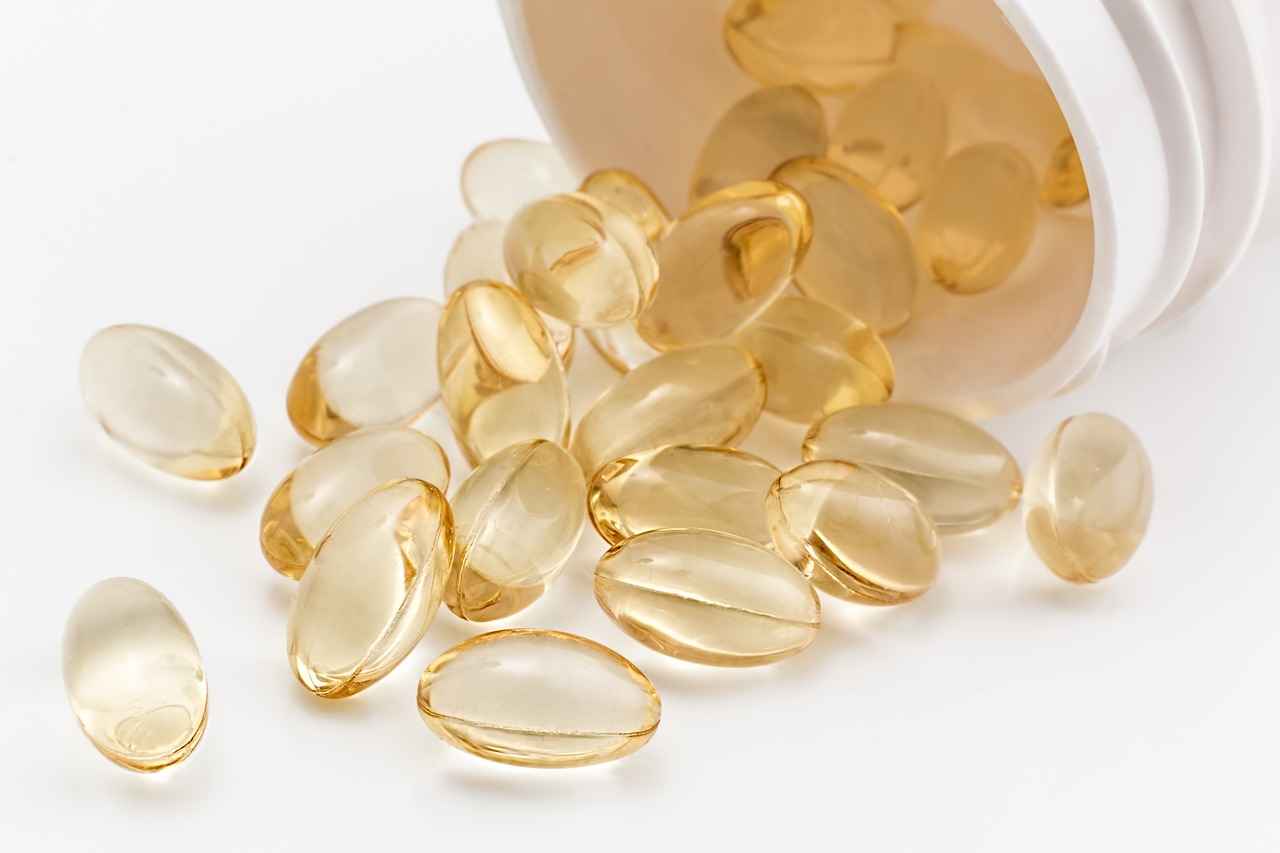This article explores the myriad health benefits associated with Omega-3 krill oil, particularly its remarkable impact on heart health. With an increasing body of research supporting its efficacy, this article aims to provide practical insights for potential users interested in enhancing their cardiovascular well-being.
What is Omega-3 Krill Oil?
Omega-3 krill oil is extracted from tiny marine crustaceans known as krill. This oil is abundant in essential omega-3 fatty acids, particularly EPA (eicosapentaenoic acid) and DHA (docosahexaenoic acid), both of which are vital for maintaining cardiovascular health and overall wellness.
Health Benefits of Omega-3 Fatty Acids
Omega-3 fatty acids are celebrated for their anti-inflammatory properties and their ability to lower triglyceride levels. These fatty acids are crucial in promoting heart health and reducing the risk of cardiovascular diseases.
- Cardiovascular Health: Studies have shown that omega-3 fatty acids can significantly enhance heart health by lowering both blood pressure and cholesterol levels.
- Lowering Blood Pressure: Research indicates that omega-3 krill oil can effectively reduce blood pressure in individuals suffering from hypertension, thereby minimizing the likelihood of heart-related complications.
- Reducing Cholesterol Levels: Omega-3s have been found to improve lipid profiles by decreasing bad cholesterol (LDL) and increasing good cholesterol (HDL), promoting a healthier heart.
Anti-Inflammatory Properties
The anti-inflammatory effects of omega-3 krill oil can help manage various inflammatory conditions, including heart disease and arthritis, contributing to overall health improvement.
How Does Krill Oil Compare to Fish Oil?
While both krill oil and fish oil are rich in omega-3 fatty acids, they differ in terms of absorption rates, nutrient composition, and potential health benefits. Krill oil is often considered to have a higher bioavailability, allowing for better absorption of its nutrients.
Nutrient Composition: In addition to omega-3s, krill oil contains powerful antioxidants like astaxanthin, which may offer additional health benefits that standard fish oil lacks.
Potential Side Effects of Omega-3 Krill Oil
While generally safe, some individuals may experience mild side effects, such as gastrointestinal discomfort or allergic reactions, particularly if they have shellfish allergies.
Recommended Dosage and Usage
Experts suggest a daily intake of 250-500 mg of omega-3 krill oil for optimal heart health, although individual needs may vary based on health conditions.
Choosing Quality Omega-3 Krill Oil Supplements
When selecting krill oil supplements, it is essential to look for products that are certified for purity and sourced sustainably. Reading labels and certifications can aid consumers in making informed choices.
Conclusion: The Heart-Healthy Potential of Omega-3 Krill Oil
In summary, omega-3 krill oil presents a range of heart-healthy benefits, making it a valuable addition to a balanced diet. With appropriate understanding and usage, it can significantly contribute to overall cardiovascular health.

What is Omega-3 Krill Oil?
Omega-3 krill oil is a nutritional supplement derived from krill, which are small crustaceans found in the ocean. These tiny creatures are a rich source of omega-3 fatty acids, particularly EPA (eicosapentaenoic acid) and DHA (docosahexaenoic acid), which are essential for various bodily functions. Unlike fish oil, krill oil contains omega-3s in the form of phospholipids, which may enhance absorption and effectiveness in the body.
Why Choose Omega-3 Krill Oil?
- Heart Health: Omega-3 krill oil is renowned for its ability to support cardiovascular health. Studies have shown that it can help lower triglyceride levels and improve overall cholesterol profiles.
- Anti-Inflammatory Effects: The anti-inflammatory properties of omega-3s can assist in alleviating symptoms of chronic inflammatory conditions, contributing to better joint and overall health.
- Antioxidant Benefits: Krill oil is also rich in astaxanthin, a powerful antioxidant that helps protect cells from oxidative stress and supports skin health.
How Does It Work?
The omega-3 fatty acids in krill oil play a crucial role in maintaining cell membrane integrity and producing anti-inflammatory compounds. By incorporating omega-3s into your diet, you can help your body manage inflammation and promote heart health.
Choosing the Right Supplement:
When selecting an omega-3 krill oil supplement, look for products that are sustainably sourced and tested for purity. It’s essential to choose a reputable brand to ensure you receive the highest quality product.
Conclusion:
In summary, omega-3 krill oil is a potent source of essential fatty acids that can significantly benefit heart health and overall well-being. By understanding its advantages and choosing quality supplements, you can effectively enhance your health.

Health Benefits of Omega-3 Fatty Acids
Omega-3 fatty acids are a group of essential fats that play a vital role in maintaining overall health, especially in relation to heart health. These fatty acids, which include EPA (eicosapentaenoic acid) and DHA (docosahexaenoic acid), are primarily found in fish oils and krill oil, and they have garnered significant attention for their numerous health benefits.
- Anti-Inflammatory Properties: Omega-3 fatty acids are renowned for their ability to combat inflammation in the body. Chronic inflammation is linked to various diseases, including heart disease, arthritis, and even cancer. By incorporating omega-3s into your diet, you can help reduce inflammation and promote overall health.
- Lowering Triglycerides: High levels of triglycerides in the blood can increase the risk of heart disease. Research has shown that omega-3 fatty acids can effectively lower triglyceride levels, contributing to improved cardiovascular health.
- Heart Health: Omega-3 fatty acids are crucial for maintaining a healthy heart. They help in regulating heart rhythms, reducing blood pressure, and improving cholesterol levels. Studies indicate that regular consumption of omega-3s can significantly lower the risk of heart attacks and strokes.
- Improved Brain Function: Beyond heart health, omega-3 fatty acids are essential for cognitive function. DHA, in particular, is a major structural component of the brain, and adequate intake may help reduce the risk of cognitive decline as we age.
- Support for Mental Health: Omega-3 fatty acids have been linked to improved mood and mental health. They may help alleviate symptoms of depression and anxiety, making them a valuable addition to mental health management.
In conclusion, incorporating omega-3 fatty acids into your diet can provide a multitude of health benefits, particularly for heart health. With their anti-inflammatory properties and ability to lower triglycerides, they serve as a crucial element in promoting overall well-being. Whether through dietary sources like fish or supplements like krill oil, ensuring adequate omega-3 intake is essential for maintaining a healthy lifestyle.
Cardiovascular Health
is a vital aspect of overall well-being, and recent studies have highlighted the significant role of omega-3 fatty acids, particularly from sources like krill oil, in promoting heart health. This section delves deeper into the mechanisms through which omega-3 fatty acids exert their beneficial effects on the cardiovascular system.
Research has shown that omega-3 fatty acids can lead to improvements in heart health by effectively lowering blood pressure and cholesterol levels. These fatty acids are known to reduce inflammation, which is a key factor in the development of heart disease. By mitigating inflammation within the blood vessels, omega-3s help maintain healthy circulation and reduce the risk of cardiovascular events.
- Lowering Blood Pressure: Omega-3 krill oil has been associated with a reduction in blood pressure among individuals suffering from hypertension. This effect is particularly beneficial as high blood pressure is a major risk factor for heart disease and stroke.
- Cholesterol Management: Studies indicate that omega-3s contribute to improved lipid profiles by decreasing levels of low-density lipoprotein (LDL) or “bad” cholesterol while increasing high-density lipoprotein (HDL) or “good” cholesterol. This balance is essential for maintaining a healthy heart.
Moreover, the anti-inflammatory properties of omega-3 fatty acids can help prevent the buildup of plaque in the arteries, a condition known as atherosclerosis. By keeping the arteries clear and flexible, omega-3s ensure optimal blood flow, which is crucial for heart function.
In summary, the incorporation of omega-3 fatty acids from krill oil into the diet presents a promising strategy for enhancing cardiovascular health. By lowering blood pressure and improving cholesterol levels, these essential fats play a crucial role in reducing the risk of heart disease, making them a valuable addition to any heart-healthy regimen.
Lowering Blood Pressure
is a critical aspect of maintaining overall heart health, particularly for individuals diagnosed with hypertension. Recent studies have highlighted the potential of Omega-3 krill oil in managing blood pressure levels effectively. This article aims to explore the mechanisms through which krill oil contributes to lower blood pressure and its implications for heart health.
Hypertension, often referred to as the “silent killer,” affects millions globally and significantly increases the risk of heart disease, stroke, and other cardiovascular issues. Incorporating Omega-3 krill oil into one’s diet may provide a natural approach to help manage this condition.
- Mechanism of Action: The omega-3 fatty acids found in krill oil, particularly EPA (eicosapentaenoic acid) and DHA (docosahexaenoic acid), are known for their anti-inflammatory properties. They help to relax blood vessels, improving circulation and reducing overall blood pressure.
- Clinical Evidence: A number of studies have shown that individuals taking omega-3 supplements, including krill oil, experienced notable reductions in both systolic and diastolic blood pressure readings. This is particularly beneficial for those diagnosed with hypertension.
- Additional Benefits: Beyond lowering blood pressure, omega-3 krill oil may also enhance heart health by improving lipid profiles, reducing triglycerides, and decreasing the risk of arrhythmias.
For those considering omega-3 krill oil as a supplement, it is essential to consult with a healthcare provider, especially if you are currently on medication for hypertension. The integration of krill oil into a balanced diet, combined with lifestyle changes such as regular exercise and a healthy diet, can lead to improved cardiovascular outcomes.
In conclusion, Omega-3 krill oil presents a promising option for individuals looking to manage their blood pressure naturally. By understanding its benefits and mechanisms, users can make informed decisions about incorporating this supplement into their health regimen.
Reducing Cholesterol Levels
Cholesterol management is vital for maintaining heart health, and recent studies indicate that omega-3 fatty acids, particularly those found in krill oil, play a significant role in this process. These essential fats can help to lower bad cholesterol (LDL) levels while simultaneously increasing good cholesterol (HDL) levels. This dual action promotes a healthier lipid profile, which is crucial for reducing the risk of cardiovascular diseases.
Research has shown that the incorporation of omega-3s into one’s diet can lead to a noticeable improvement in cholesterol levels. For instance, a study published in the Journal of Nutrition revealed that participants who consumed omega-3 supplements experienced a reduction in LDL cholesterol by up to 10%. Furthermore, their HDL cholesterol levels saw an increase of about 5%, indicating a positive shift in their overall lipid profiles.
One of the mechanisms by which omega-3 fatty acids exert their effects is by enhancing the liver’s ability to process fats. This process not only assists in the reduction of LDL cholesterol but also helps in the conversion of LDL to HDL. Additionally, omega-3s help to reduce triglyceride levels, which can also contribute to improved heart health.
Incorporating omega-3 krill oil into your daily routine can be an effective strategy for those looking to manage their cholesterol levels. It is recommended to consult with a healthcare provider to determine the appropriate dosage tailored to individual health needs. A typical dosage ranges from 250 mg to 500 mg per day, depending on dietary habits and health goals.
In conclusion, omega-3 krill oil not only aids in reducing bad cholesterol but also boosts good cholesterol, making it a valuable addition to a heart-healthy lifestyle. By prioritizing omega-3 intake, individuals can significantly enhance their cardiovascular health.
Anti-Inflammatory Properties
Anti-Inflammatory Properties of Omega-3 Krill Oil
Omega-3 krill oil is renowned for its potent anti-inflammatory effects, making it a valuable supplement for individuals dealing with various inflammatory conditions. This article explores the mechanisms behind these effects and their implications for health.
Inflammation is a natural response of the body to injury or infection, but chronic inflammation can lead to serious health issues, including heart disease, arthritis, and other autoimmune disorders. Omega-3 fatty acids, particularly those found in krill oil, play a crucial role in modulating this response.
- Mechanism of Action: Omega-3 fatty acids are known to inhibit the production of pro-inflammatory cytokines and eicosanoids. By doing so, they help in reducing the overall inflammatory response.
- Heart Disease Management: Chronic inflammation is a significant risk factor for heart disease. Omega-3 krill oil helps lower inflammation, thereby potentially reducing the risk of heart-related issues.
- Arthritis Relief: For individuals suffering from arthritis, omega-3 krill oil can alleviate joint pain and stiffness, enhancing mobility and quality of life.
Research has shown that regular consumption of omega-3 krill oil can lead to significant improvements in inflammatory markers. For instance, a study published in the American Journal of Clinical Nutrition highlighted how participants who supplemented with omega-3s experienced reduced levels of C-reactive protein (CRP), a key indicator of inflammation.
Moreover, krill oil’s unique composition, which includes antioxidants like astaxanthin, further enhances its anti-inflammatory properties. This antioxidant can help protect the body from oxidative stress, which often accompanies chronic inflammation.
In conclusion, incorporating omega-3 krill oil into one’s diet can be a strategic approach to managing inflammation and promoting overall health. As always, consulting with a healthcare provider is advisable before starting any new supplement regimen.

How Does Krill Oil Compare to Fish Oil?
When it comes to omega-3 fatty acids, krill oil and fish oil are two popular supplements that are often compared. Both are derived from marine sources and offer significant health benefits, particularly for heart health. However, there are notable differences between the two that can influence a consumer’s choice.
Absorption Rates
One of the key differences lies in their absorption rates. Research indicates that krill oil has a higher bioavailability compared to fish oil. This means that the body can absorb and utilize the omega-3 fatty acids from krill oil more effectively, potentially leading to greater health benefits with lower dosages.
Nutrient Composition
In addition to omega-3 fatty acids, krill oil contains unique nutrients such as astaxanthin, a powerful antioxidant that is not typically found in fish oil. This antioxidant may offer additional health benefits, including enhanced protection against oxidative stress and inflammation.
Health Benefits
- Cardiovascular Support: Both oils can help lower cholesterol levels and reduce triglycerides, but krill oil may do so more effectively due to its superior absorption.
- Anti-Inflammatory Properties: The anti-inflammatory effects of omega-3s in both oils can support joint health, but krill oil’s astaxanthin may enhance these benefits.
Side Effects
While both supplements are generally safe, they can cause side effects. Krill oil may lead to fewer gastrointestinal issues compared to fish oil, making it a preferable option for some individuals.
Conclusion
In summary, while both krill oil and fish oil provide essential omega-3 fatty acids, krill oil offers advantages in terms of absorption, nutrient composition, and potential health benefits. Understanding these differences can help consumers make informed decisions about which supplement to choose for their health needs.
Absorption Rates
When discussing the efficacy of omega-3 supplements, one of the most significant factors to consider is . Research suggests that krill oil has a distinct advantage over traditional fish oil in this regard. The bioavailability of krill oil, which refers to the proportion of nutrients that the body can absorb and utilize, is believed to be superior. This means that the omega-3 fatty acids found in krill oil are more readily absorbed into the bloodstream compared to those in fish oil.
The primary reason for this enhanced absorption is the unique composition of krill oil. Krill oil contains omega-3 fatty acids in the form of phospholipids, which are easier for the body to assimilate. In contrast, the omega-3s in fish oil are primarily in triglyceride form. Studies have shown that the phospholipid form allows for a more efficient incorporation into cell membranes, leading to better utilization of these essential fatty acids.
Moreover, krill oil is often accompanied by astaxanthin, a powerful antioxidant that not only helps protect the oil from oxidation but may also contribute to its absorption. The presence of astaxanthin enhances the overall health benefits of krill oil, making it a more appealing option for those seeking to improve their omega-3 intake.
In summary, if you are considering adding an omega-3 supplement to your diet, krill oil may provide better absorption and utilization of its beneficial nutrients compared to fish oil. This can lead to improved health outcomes, particularly for those focusing on heart health and reducing inflammation.
Nutrient Composition
plays a crucial role in understanding the benefits of omega-3 krill oil, particularly when compared to traditional fish oil. While both sources provide essential omega-3 fatty acids, krill oil distinguishes itself through its unique nutrient profile.
One of the standout features of krill oil is its high content of astaxanthin, a powerful antioxidant that gives krill its characteristic pink color. Astaxanthin is known for its ability to combat oxidative stress in the body, which can lead to chronic diseases. This antioxidant is not commonly found in standard fish oil, making krill oil a more beneficial option for those seeking additional health advantages.
- Omega-3 Fatty Acids: Krill oil is rich in both EPA (eicosapentaenoic acid) and DHA (docosahexaenoic acid), two essential fatty acids that support heart health, brain function, and overall well-being.
- Phospholipids: The omega-3s in krill oil are primarily bound to phospholipids, which enhance their absorption and bioavailability in the body compared to the triglyceride form found in fish oil.
- Vitamins: Krill oil also contains vitamins A, D, and E, which contribute to various physiological functions, including immune support and skin health.
Moreover, the combination of omega-3s and astaxanthin in krill oil may provide synergistic effects, potentially enhancing the overall health benefits. For instance, the anti-inflammatory properties of omega-3s, when paired with the antioxidant capabilities of astaxanthin, can lead to improved cardiovascular health and reduced risk of chronic diseases.
In summary, the of omega-3 krill oil sets it apart from standard fish oil. Its unique blend of omega-3 fatty acids, phospholipids, and antioxidants like astaxanthin not only enhances its health benefits but also offers a more effective option for those looking to improve their overall health.

Potential Side Effects of Omega-3 Krill Oil
While omega-3 krill oil is generally regarded as safe and beneficial for health, some individuals may experience mild side effects. Understanding these potential reactions is crucial for users to make informed decisions regarding their supplementation. Below, we explore the common side effects and considerations for those considering omega-3 krill oil.
- Gastrointestinal Issues: Some users may report digestive discomfort, including nausea, diarrhea, or stomach cramps. These symptoms are often more pronounced when starting with high doses. Gradually increasing the dosage can help mitigate these effects.
- Allergic Reactions: Since krill oil is derived from crustaceans, individuals with shellfish allergies should exercise caution. Allergic reactions can range from mild symptoms, such as skin rashes, to more severe reactions, including anaphylaxis.
- Blood Thinning: Omega-3 fatty acids have natural blood-thinning properties. For individuals taking anticoagulant medications, such as warfarin, it is essential to consult a healthcare provider before starting krill oil to avoid potential interactions.
- Fishy Aftertaste: Some users may experience a fishy aftertaste or breath, which can be unpleasant. Choosing enteric-coated capsules may help reduce this side effect by preventing the oil from breaking down in the stomach.
- Interactions with Medications: Omega-3 krill oil may interact with certain medications, including blood pressure medications and anti-inflammatory drugs. It is advisable to discuss any potential interactions with a healthcare professional.
In summary, while omega-3 krill oil offers numerous health benefits, it is essential to be aware of the potential side effects. By understanding these risks and consulting with healthcare professionals, users can enjoy the advantages of krill oil while minimizing any adverse reactions.
Gastrointestinal Issues
are a common concern for individuals starting on Omega-3 krill oil supplements. While these supplements offer numerous health benefits, some users may find themselves experiencing mild digestive discomforts. This section aims to provide a comprehensive understanding of these potential side effects, particularly focusing on nausea and diarrhea.
When initiating a regimen of krill oil, especially at higher doses, the body may need time to adjust to the influx of omega-3 fatty acids. Nausea is a reported side effect, which can manifest as a feeling of queasiness or an upset stomach. This reaction is often temporary and may subside as the body acclimatizes to the supplement. Users are encouraged to start with lower doses and gradually increase to minimize these effects.
Additionally, some individuals may experience diarrhea, which can occur due to the body’s reaction to the oil. This side effect can vary in severity from mild to more pronounced, depending on the individual’s tolerance and the dosage taken. To mitigate this, it is advisable to take krill oil with meals, as this can enhance absorption and reduce the likelihood of gastrointestinal distress.
For those who have a history of digestive issues or are particularly sensitive to supplements, consulting with a healthcare professional prior to starting krill oil is recommended. They can provide personalized advice and help determine the appropriate dosage tailored to individual health needs.
In summary, while gastrointestinal issues such as nausea and diarrhea can occur when beginning Omega-3 krill oil supplementation, these effects are typically mild and manageable. By starting with lower doses and taking the supplement with food, users can often enjoy the heart-healthy benefits of krill oil without significant discomfort.
Allergic Reactions
can be a significant concern for individuals considering the use of omega-3 krill oil supplements. It is crucial to understand the potential risks associated with this product, especially for those with specific allergies.
Krill oil is extracted from small crustaceans known as krill, which are a vital part of the marine ecosystem. While it is celebrated for its numerous health benefits, including promoting heart health and reducing inflammation, it is important to note that it is derived from crustaceans. This poses a risk for individuals who have allergies to shellfish.
The allergic reactions to krill oil can range from mild to severe. Common symptoms may include:
- Hives: Raised, itchy welts on the skin.
- Swelling: Particularly around the face, lips, and throat.
- Gastrointestinal Issues: Such as nausea, vomiting, or diarrhea.
- Respiratory Problems: Including difficulty breathing or wheezing.
If you have a known shellfish allergy, it is advisable to consult with a healthcare professional before incorporating krill oil into your diet. They can provide personalized advice and alternatives that may offer similar health benefits without the risk of an allergic reaction.
For those without shellfish allergies, krill oil can be a beneficial supplement. However, it is essential to monitor any unexpected reactions and discontinue use if any symptoms arise. Always ensure that you are purchasing high-quality krill oil from reputable sources to minimize the risk of contamination.
In conclusion, while omega-3 krill oil presents various health benefits, individuals with shellfish allergies must exercise caution. Being informed and vigilant can help users make safe and beneficial choices regarding their health supplements.

Recommended Dosage and Usage
Determining the appropriate dosage of omega-3 krill oil is essential for maximizing its benefits while minimizing potential side effects. Proper usage ensures that individuals can effectively harness the health advantages without experiencing discomfort. This section offers detailed guidance on how to use omega-3 krill oil safely and effectively.
Daily Dosage Recommendations
- For general heart health, a daily intake of 250-500 mg of omega-3 krill oil is commonly recommended.
- Individuals with specific health concerns may benefit from higher doses, but it is crucial to consult with a healthcare professional before increasing intake.
- Always consider factors such as age, weight, and overall health when determining the right dosage for you.
Best Practices for Consumption
- Taking krill oil with meals can enhance its absorption. Consuming it alongside a source of fat can improve the bioavailability of omega-3 fatty acids.
- To minimize gastrointestinal discomfort, start with a lower dose and gradually increase it as your body adjusts.
- Consistency is key; take krill oil at the same time each day to establish a routine.
Monitoring Effects
- Pay attention to how your body responds after starting krill oil. If you experience any adverse effects, consider adjusting your dosage or consulting a healthcare provider.
- Keep track of any changes in your health, especially related to cardiovascular function, to assess the supplement’s effectiveness.
In conclusion, understanding the recommended dosage and proper usage of omega-3 krill oil can significantly enhance its benefits for heart health. By following these guidelines, individuals can safely integrate this supplement into their daily routine for optimal results.
Daily Dosage Recommendations
When considering the incorporation of omega-3 krill oil into your daily routine, it is essential to understand the recommended dosages to reap the maximum health benefits, particularly for heart health. Experts generally suggest a daily intake of 250-500 mg of omega-3 krill oil. However, it is important to note that individual needs may vary based on several factors, including age, health status, and dietary habits.
For individuals with specific health concerns, such as cardiovascular disease or high cholesterol, a higher dosage may be beneficial. Consulting with a healthcare provider can help determine the most appropriate dosage tailored to personal health needs.
| Health Condition | Recommended Daily Dosage (mg) |
|---|---|
| General Health | 250-500 |
| Heart Disease | 500-1000 |
| High Cholesterol | 500-1000 |
It is advisable to take krill oil with meals to enhance absorption and minimize potential gastrointestinal discomfort. This practice not only aids in better nutrient uptake but also makes the supplement easier on the digestive system.
Furthermore, when starting with krill oil, individuals may want to begin with a lower dose and gradually increase it. This approach can help the body adjust to the supplement, reducing the likelihood of experiencing any adverse effects.
In summary, while the general recommendation for omega-3 krill oil intake is between 250-500 mg daily, personalized recommendations based on health status and dietary needs are crucial for optimizing heart health and overall well-being.
Best Practices for Consumption
When considering the incorporation of omega-3 krill oil into your daily routine, it is essential to follow certain best practices to maximize its benefits while minimizing any potential side effects. One of the most effective strategies is to take krill oil with meals. This approach not only enhances the absorption of the beneficial nutrients contained in krill oil but also helps reduce gastrointestinal discomfort that some users may experience.
- Enhanced Absorption: Consuming krill oil during meals allows the body to utilize the omega-3 fatty acids more effectively. The presence of dietary fats in a meal can facilitate better absorption of these essential nutrients.
- Reduced Gastrointestinal Discomfort: Taking krill oil on an empty stomach may lead to digestive issues such as nausea or diarrhea. By pairing it with food, users often find it easier on their digestive systems, making the experience more pleasant.
- Consistency is Key: For optimal results, it is advisable to take krill oil consistently at the same time each day. This routine helps maintain steady levels of omega-3 fatty acids in your body, contributing to long-term heart health.
- Follow Recommended Dosages: Adhering to the recommended dosage of 250-500 mg per day can help ensure that you receive the heart-healthy benefits without overwhelming your system.
In summary, taking krill oil with meals is a simple yet effective practice that can significantly enhance its benefits. By following these best practices, users can enjoy improved absorption and a more comfortable experience, making krill oil a valuable addition to their health regimen.

Choosing Quality Omega-3 Krill Oil Supplements
is essential for maximizing health benefits while minimizing risks. With the increasing popularity of krill oil as a dietary supplement, it is vital to ensure that the products you select are both effective and safe. Here are some key tips for identifying reputable krill oil supplements.
- Look for Third-Party Testing: Reputable krill oil brands often undergo third-party testing to verify their purity and potency. Check for certifications from organizations like the International Fish Oil Standards (IFOS) or ConsumerLab.
- Check Sourcing and Sustainability: Opt for krill oil sourced from sustainable fisheries. Look for products certified by organizations such as the Marine Stewardship Council (MSC) to ensure environmental responsibility.
- Read Product Labels Carefully: A quality krill oil supplement should clearly list its omega-3 content, including EPA and DHA levels. Ensure that the label also mentions the presence of antioxidants like astaxanthin, which enhance the oil’s health benefits.
- Consider the Formulation: Krill oil is available in various forms, including softgels and liquid. Select a formulation that suits your lifestyle and preferences, keeping in mind that liquid forms may offer better absorption.
Consult with Healthcare Professionals: Before starting any supplement, it is advisable to consult with a healthcare provider, especially if you have existing health conditions or are taking medications. They can provide personalized recommendations based on your health profile.
In summary, selecting high-quality krill oil supplements involves careful consideration of sourcing, testing, and formulation. By following these guidelines, you can ensure that you are choosing a product that supports your health effectively and safely.
Checking for Purity and Sustainability
When selecting omega-3 krill oil supplements, it is vital to prioritize products that are both pure and sustainably sourced. This not only ensures that you are consuming a product that is safe and effective but also supports environmental stewardship. Here are some essential considerations to keep in mind:
- Certification for Purity: Look for krill oil products that have been certified by reputable organizations. Certifications, such as those from the International Fish Oil Standards (IFOS) or Friend of the Sea, indicate that the product has undergone rigorous testing for contaminants, including heavy metals, PCBs, and other harmful substances.
- Sustainable Sourcing: Opt for krill oil sourced from fisheries that adhere to sustainable practices. This means that the krill is harvested in a way that does not deplete the population and maintains the ecological balance of the marine environment. Look for products that carry labels from organizations like Marine Stewardship Council (MSC).
- Transparency in Sourcing: Reputable brands often provide detailed information about where their krill is sourced. This transparency allows consumers to make informed choices and ensures that the product aligns with their values regarding environmental responsibility.
- Environmental Impact: Consider the overall environmental impact of the krill oil product. Sustainable practices not only protect marine life but also contribute to the health of our oceans, which is critical for the planet’s biodiversity.
By choosing krill oil products that are certified for purity and sourced sustainably, consumers can enjoy the health benefits of omega-3 fatty acids while also contributing to the protection of our planet. This dual focus on personal health and environmental responsibility is essential in today’s world.
Reading Labels and Certifications
When it comes to selecting krill oil supplements, understanding product labels and certifications is crucial for making informed health decisions. With the market flooded with various options, consumers need to be equipped with the knowledge to discern the quality and potency of these supplements.
Product labels serve as a vital source of information, detailing the ingredients, dosage, and nutritional value of krill oil. Key elements to look for include:
- Omega-3 Content: Ensure the label specifies the amount of EPA and DHA, the beneficial omega-3 fatty acids.
- Source of Krill: Look for labels that indicate the source of krill, as sustainably sourced krill can enhance the quality of the oil.
- Purity Statements: Certifications from third-party organizations can confirm that the product is free from harmful contaminants like heavy metals and PCBs.
Certifications can provide additional assurance regarding the safety and efficacy of krill oil supplements. Some notable certifications include:
- Marine Stewardship Council (MSC): Indicates that the krill is sourced sustainably.
- Good Manufacturing Practices (GMP): Ensures that the product is manufactured under strict quality control standards.
- Non-GMO Project Verified: Confirms that the product does not contain genetically modified organisms.
By carefully examining product labels and certifications, consumers can make better choices that align with their health goals. Always prioritize products that are transparent about their sourcing and manufacturing processes.
In conclusion, understanding krill oil product labels and certifications is essential for ensuring that you are choosing high-quality supplements that can contribute positively to your health.

Conclusion: The Heart-Healthy Potential of Omega-3 Krill Oil
In summary, omega-3 krill oil stands out as a powerful supplement with numerous benefits for heart health. Its rich composition of omega-3 fatty acids, particularly EPA and DHA, plays a critical role in supporting cardiovascular function. Regular consumption of this oil can lead to significant improvements in heart-related metrics, including blood pressure and cholesterol levels.
Research has shown that omega-3 fatty acids can help reduce inflammation, which is a key factor in many heart diseases. By lowering triglyceride levels and enhancing the body’s lipid profile, krill oil can effectively diminish the risk of developing heart-related conditions. Moreover, the presence of antioxidants like astaxanthin in krill oil further enhances its protective effects against oxidative stress, contributing to overall cardiovascular health.
For those considering adding omega-3 krill oil to their diet, it is essential to understand the correct dosage and potential side effects. Experts generally recommend a daily intake of 250-500 mg for optimal heart health. However, individuals should consult healthcare professionals to tailor the dosage to their specific health needs.
Furthermore, choosing high-quality krill oil supplements is crucial. Consumers should look for products that are certified for purity and sustainability, ensuring that they are making a safe and effective choice. Reading labels carefully can help in identifying reputable brands that prioritize quality.
In conclusion, incorporating omega-3 krill oil into your daily routine can be a transformative step towards achieving better heart health. With a deeper understanding of its benefits and proper usage, individuals can harness the full potential of this remarkable supplement, leading to enhanced overall well-being.














